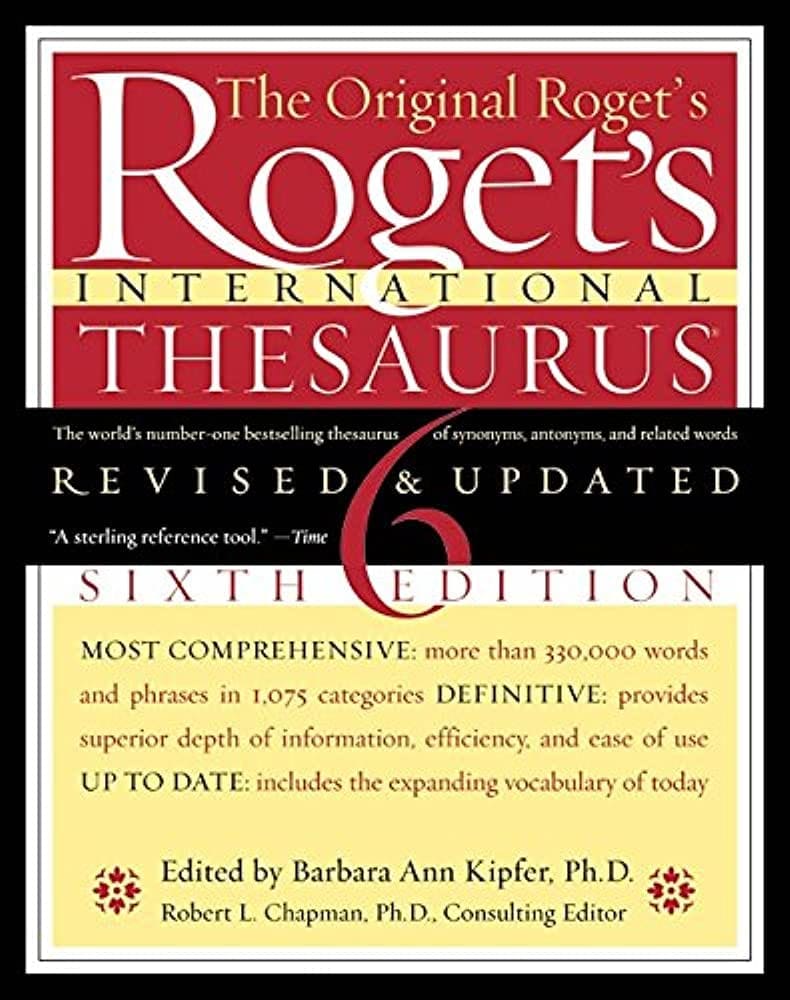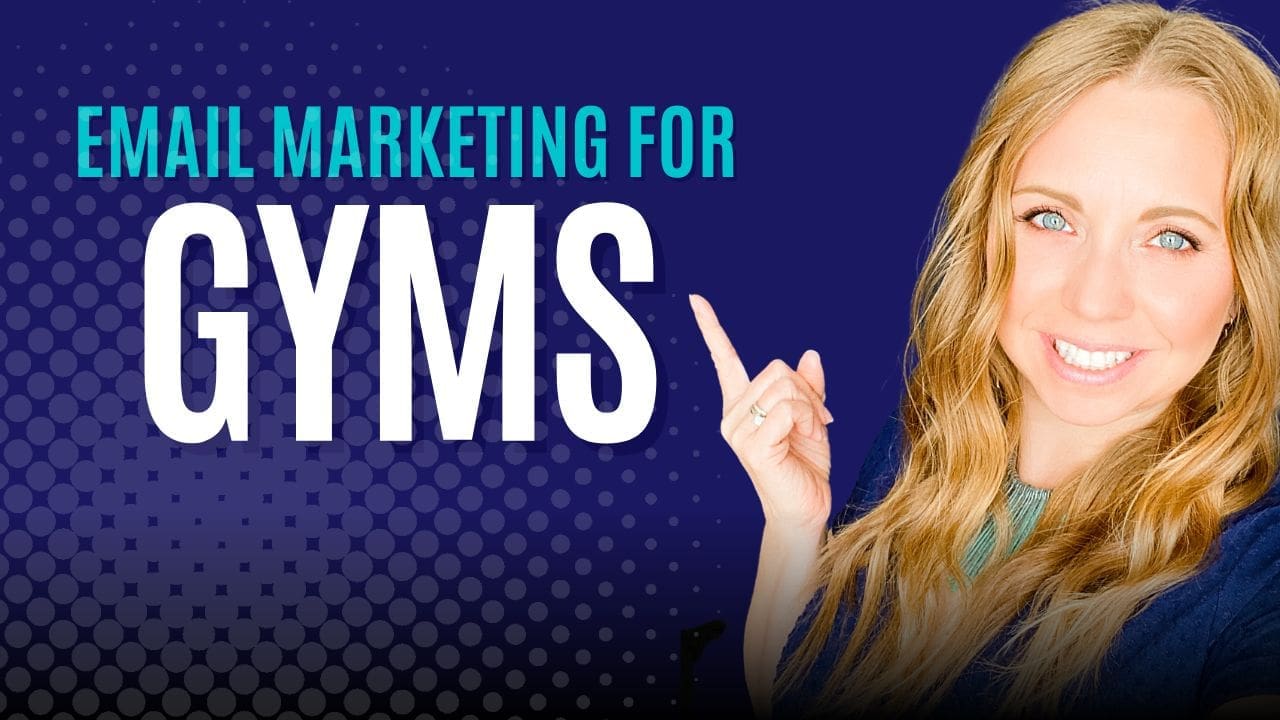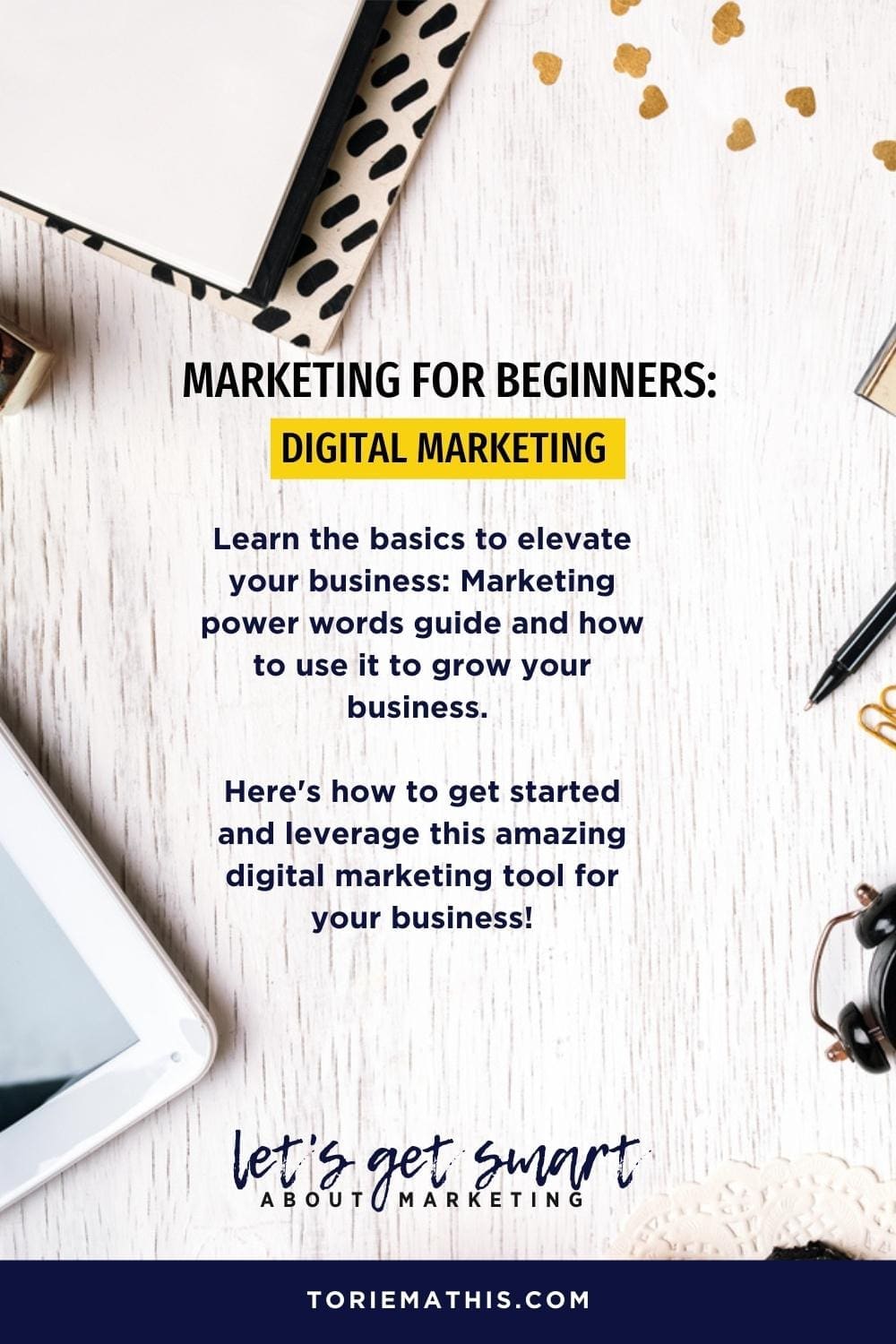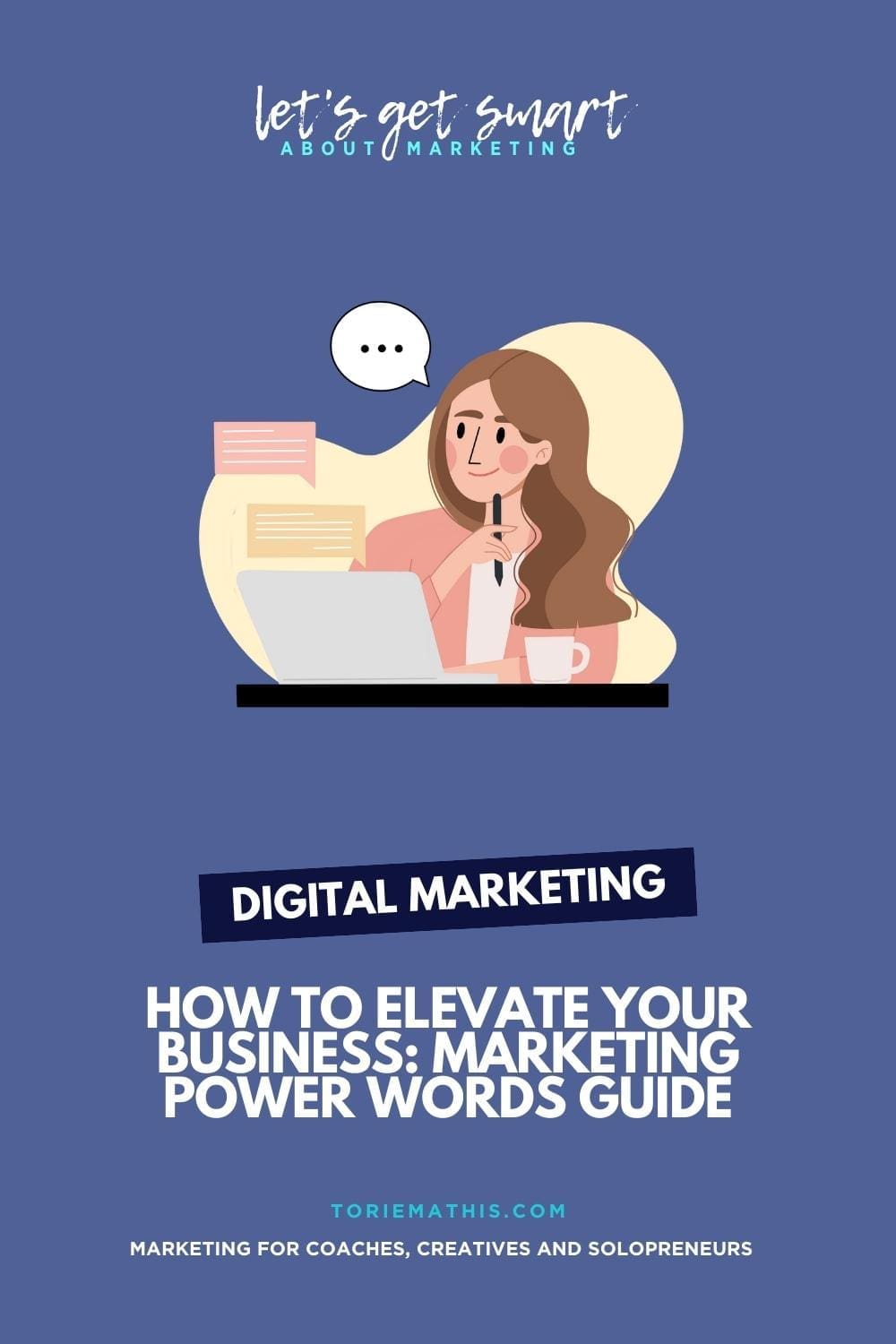Elevate Your Business: Marketing Power Words Guide

Marketing power words are essential tools that smart marketers use to elicit an emotional response and generate interest among potential customers. These carefully chosen words can significantly boost conversions, create a greater impact on your audience, and ultimately drive success for your business.
In this article, we will delve into the world of marketing power words by exploring their definitions, benefits, and examples. We’ll also explore how to effectively utilize these words across various platforms such as social media and websites.
We’ll examine various sorts of persuasive words – those that stir emotions, incite action or describe things – and how to pick the best ones for your intended audience’s wants and tastes. And we will discuss crafting compelling calls-to-action with these powerful language elements while understanding the psychology behind effective CTAs.
Last but not least, we will cover measuring the impact of marketing power words on your results through tracking performance metrics and analyzing data for continuous improvement.
So buckle up as we embark on this journey towards mastering the art of using marketing power words in our copywriting endeavors!
Table of Contents:
- What are Marketing Power Words?
- How to Use Power Words in Your Content
- Types of Marketing Power Words
- Choosing the Right Marketing Power Word for Your Audience
- Creating an Effective Call-to-Action with Marketing Power Words
- Tools to Find Power Words
- Power Word Swaps
- Conclusion
What are Marketing Power Words?
Power words are persuasive, emotionally-charged words that have the ability to influence people’s decisions. Power words can be used in promotional efforts to grab attention and entice people to act. Power words tap into people’s emotions and subconsciously trigger a response, making them an effective tool for driving conversions.
Definition of Power Words
Power words are descriptive terms that evoke strong emotional responses from readers or listeners. Headlines, CTAs, product descriptions, and other content can be crafted using words that will stimulate strong reactions from viewers or listeners.
Benefits of Using Power Words
By incorporating power words into your content, you can create more compelling copy that resonates with your target audience on a deeper level. By utilizing power words, you can easily captivate your target audience and ensure that they remain interested in the content until its conclusion. Additionally, using power words helps make your message more memorable so that readers will remember it long after they’ve finished reading or hearing it.
Examples of commonly-employed persuasive words include “staggering,” “extraordinary,” “alluring,” “astounding,” “mandatory,” and “transformative.” These types of power words help add emphasis and urgency to whatever message is being conveyed, while also creating an emotional connection between the reader/listener and the brand or product being promoted.
Marketing power words are an effective tool for increasing engagement with your content and can help you craft more compelling copy. Strategically employing these persuasive words can help to amplify your message’s effect on viewers.
How to Use Power Words in Your Content
Power words are a great way to engage your readers and draw them into your content. By utilizing power words, entrepreneurs can build an emotional connection with their audience to ensure a successful marketing campaign. Power words have the power to evoke strong feelings and emotions, making them an invaluable tool for entrepreneurs who want to capture their reader’s attention.
Here are some tips for crafting engaging copy with power words:
Power Words Tip 1 – The Right Word
First, choose the right word or phrase that best conveys the message you’re trying to get across. Words like “astonishing” or “incredible” can be powerful but also overused; opt instead for more specific terms such as “unprecedented” or “groundbreaking.”
Power Words Tip 2 – Emotion
Think about what kind of emotion you want to evoke in your reader—is it excitement? Fear? Inspiration? Choose a word that will make them feel that emotion.
Power Words Tip 3 -Be Strategic
Once you have chosen the right power words, it’s time to incorporate them into your content strategically and effectively. Start by using one power word at a time throughout different sections of text—this will keep things from getting too overwhelming or repetitive-sounding.
Power Words Tip 4 – Be Strategic
Consider adding multiple senses when describing something; rather than just saying something looks amazing, describe how it sounds and feels as well. This type of detail helps paint a vivid picture in readers’ minds while giving your writing more depth and character.
Also, pay attention to context: if there is already lots of exciting language being used, then perhaps tone it down slightly so it doesn’t seem overly dramatic.
Power Words Tip 5 – Format it
Finally, use best practices when optimizing your content with power words so they really stand out on the page (or screen). Use bold fonts or italics where appropriate; these formatting tricks can draw attention to key phrases without cluttering up the page visually.
By using power words in your content, you can effectively engage with readers and create compelling copy. Gaining insight into the various kinds of persuasive words can help you construct more impactful and captivating material that resonates with your intended demographic.
Types of Marketing Power Words
Power words are essential for any successful digital marketing strategy. They help to create a strong connection with the target audience, evoke emotions, and drive action.
There are three main types of power words: action-oriented, emotional and descriptive, and persuasive and convincing.
Action-oriented power words
Action-oriented power words focus on inspiring readers to take immediate action. These words typically have an urgent tone that encourages people to act quickly or risk missing out on something great. Other examples of action-oriented power words include “now,” “today,” “immediately,” and “instantly.”
Emotional and descriptive power words
Emotional and descriptive power words evoke feelings in the reader by painting vivid pictures in their mind. These can be positive (e.g., amazing, beautiful) or negative (e.g., horrible, ugly). “Astonishing vista” or “incredible bargain.”
Persuasive and convincing power words
Finally, there are persuasive and convincing power words that seek to convince readers of the value of your product/service by emphasizing its benefits over competitors. Examples include phrases such as “guaranteed success,” “unmatched quality,” or “the ultimate solution.”
By understanding the different types of marketing power words, you can craft effective and persuasive messages to your target audience. Once you have identified your target audience and their needs, it’s time to examine the content strategies of competitors in order to gain insight into how best to reach your own objectives.
Choosing the Right Marketing Power Word for Your Audience
Choosing the right marketing power word for your audience is essential to creating effective content that resonates with them. To do this, you need to identify their needs and preferences, analyze competitors’ strategies, and test different types of words.
Identifying Your Target Audience’s Needs and Preferences
The first step in selecting a powerful word for your target audience is understanding what they want from your content. Researching customer reviews or surveys can help you get an idea of what matters most to them.
Consider using analytics tools like Google Analytics or Heatmap software to track user behavior on your website and see which topics generate the most engagement. This data can be invaluable when choosing the right words for each piece of content you create.
Analyzing Your Competitors’ Content Strategies
Analyzing competitor content is also important when it comes to selecting marketing power words for your own campaigns. Look at how other companies are targeting similar audiences and take note of any successful tactics they use in their copywriting efforts.
You may even find some ideas that could work well for you as well.
Testing Different Types of Marketing Power Words
Once you have identified potential keywords that resonate with your target audience, it’s time to test them out. Try running A/B tests on different versions of ads or landing pages featuring various power words to see which ones perform best with users before committing fully to one particular phrase or concept.
Consider testing out different variations within a single campaign—for example, swapping out “amazing” for “incredible” in one version—to see if certain phrases have more impact than others on specific audiences or demographics.
By understanding the needs and preferences of your target audience, analyzing competitor content strategies, and testing different types of marketing power words, you can choose the right ones for maximum impact. Crafting effective calls-to-action with powerful language is an essential part of any successful digital marketing strategy.
Creating an Effective Call-to-Action with Marketing Power Words
Constructing a compelling call-to-action is essential for any successful digital marketing strategy, and power words can be used to draw attention and motivate readers. Using the right power words can help capture your audience’s attention and encourage them to take action. Power words are persuasive, descriptive, or emotional words that evoke a strong response from readers. They have the potential to increase engagement and drive conversions.
Writing compelling calls-to-action with powerful language is key to creating an effective CTA. Use power words such as “discover”, “unlock”, and “transform” to entice readers into taking action. Make sure your CTA stands out by using bold fonts or contrasting colors that draw attention. Additionally, try incorporating urgency into your CTA by adding phrases like “limited time offer.” or “hurry before it’s too late.”
Understand your Audience
It’s also important to understand the psychology behind effective CTAs in order to craft ones that resonate with your target audience. For millennials, consider employing jargon they’re familiar with like “YOLO” or “FOMO”. If you’re targeting older generations, you might want to use more formal language like “act now” or “take advantage of this opportunity”.
Finally, measure the impact of marketing power words on your results by tracking performance metrics such as clickthrough rate (CTR), conversion rate (CR), cost per lead (CPL), analyzing data to identify areas for improvement, and adjusting strategies based on results. This will help ensure that you are optimizing content effectively and maximizing ROI from campaigns featuring powerful CTAs crafted with carefully chosen marketing power words.
By understanding the psychology behind effective calls-to-action and crafting CTAs that resonate with your audience, you can create an effective call-to-action using marketing power words. Proceeding to the subsequent topic, we’ll investigate how to evaluate these expressions’ effect on your outcomes.
Tools to Find Power Words
As a marketer, you can use several tools and resources to find power words that can enhance the effectiveness of your marketing campaigns. Here are some options:
Thesaurus Tools
Thesaurus websites like Thesaurus.com, PowerThesaurus.org, or Synonym.com can help you discover synonyms and related words with stronger emotional impact. Or if you’re like me and ou want something tangible, you can bust out this guy.
You can search for words related to the emotions or actions you want to evoke in your audience.
Emotional Marketing Value Headline Analyzer
The Emotional Marketing Value (EMV) Headline Analyzer by the Advanced Marketing Institute evaluates your headline’s emotional impact and provides a score. It helps you determine if your headline has a strong emotional appeal.
CoSchedule Headline Analyzer
CoSchedule offers a Headline Analyzer that evaluates the quality and effectiveness of your headlines. It provides insights into word balance, length, sentiment, and suggests improvements to make your headlines more engaging.
Power Words Lists
Various online resources provide curated lists of power words that marketers can use. Websites like SmartBlogger and Sumo have compiled extensive lists of power words that you can incorporate into your marketing materials.
Competitor Analysis
Study the marketing materials, advertisements, and copy of successful competitors in your industry. Analyze their language and identify the power words they frequently use. This can give you insights into effective vocabulary choices.
Customer Surveys and Feedback
Reach out to your target audience and conduct surveys or collect feedback to understand their language and the words that resonate with them. Use the words and phrases they use to describe their pain points, desires, or expectations.
Copywriting Books and Courses
Invest in reputable copywriting courses or books that teach persuasive writing techniques. They often cover power words and provide examples of their usage in marketing contexts.
There are several highly regarded copywriting books that can be beneficial for marketers. Here are some of the best ones:
-
“Influence: The Psychology of Persuasion” by Robert Cialdini: While not specifically a copywriting book, it delves into the principles of persuasion and can help marketers understand the psychology behind effective communication.
-
“Hey, Whipple, Squeeze This: The Classic Guide to Creating Great Ads” by Luke Sullivan: This book provides practical insights into the world of advertising and copywriting, offering tips and techniques for crafting compelling and memorable ads.
-
“The Copywriter’s Handbook: A Step-by-Step Guide to Writing Copy That Sells” by Robert W. Bly: It covers the fundamentals of copywriting, including crafting headlines, writing effective body copy, creating persuasive offers, and more.
-
“Cashvertising: How to Use More Than 100 Secrets of Ad-Agency Psychology to Make Big Money Selling Anything to Anyone” by Drew Eric Whitman: This book explores the psychological triggers and techniques used in advertising to maximize persuasion and generate sales.
-
“Breakthrough Advertising” by Eugene M. Schwartz: Considered a classic in the field, this book dives deep into the psychology of customer awareness and presents strategies for crafting compelling copy that resonates with different stages of customer awareness.
-
“Words That Sell: More than 6,000 Entries to Help You Promote Your Products, Services, and Ideas” by Richard Bayan: It serves as a valuable reference guide, providing a vast collection of words and phrases categorized by themes to help spark creativity and enhance copywriting skills.
-
“The Adweek Copywriting Handbook” by Joseph Sugarman: This book offers practical advice on writing persuasive copy, focusing on understanding the target audience, crafting compelling headlines, and using storytelling techniques.
These books can provide valuable insights, techniques, and inspiration for marketers looking to improve their copywriting skills and create more impactful marketing materials.
Remember, while power words can be effective in grabbing attention and evoking emotions, it’s essential to use them ethically and responsibly, ensuring they align with your brand’s messaging and values.
List of Common Power Word Swaps
Here are 30 common word swaps that can help you transform ordinary words into more powerful and engaging alternatives:
- Amazing: Fantastic
- Cheap: Affordable
- Easy: Effortless
- Great: Incredible
- Improve: Transform
- Fast: Rapid
- Big: Enormous
- Small: Petite
- Learn: Master
- Free: Complimentary
- Important: Vital
- Unique: Unparalleled
- Happy: Ecstatic
- Fun: Thrilling
- New: Cutting-edge
- Strong: Robust
- Exclusive: Elite
- Reliable: Trustworthy
- Beautiful: Exquisite
- Discover: Unearth
- Boost: Skyrocket
- Proven: Verified
- Unforgettable: Memorable
- Valuable: Priceless
- Essential: Indispensable
- Revolutionary: Groundbreaking
- Ultimate: Supreme
- Suggest: Propose
- Love: Value
- Like: Prefer
Remember to use these power words strategically, ensuring they align with your brand and target audience. Their impact will be stronger when combined with compelling storytelling and tailored messaging.
Conclusion
The use of power words in marketing can be a powerful tool for entrepreneurs looking to engage their target audience and boost conversions. It’s important to understand the different types of power words available and how they can be used effectively in your content.
When choosing the right power word for your audience, you should take into account their needs and preferences as well as analyze what strategies are working best for competitors. Testing out different types of power words is also essential so that you can find the ones that resonate most with your readers. Additionally, crafting compelling calls-to-action with powerful language will help increase engagement and conversion rates. Finally, tracking performance metrics will give you insight into which strategies are working best so that you can adjust accordingly.
Overall, using marketing power words strategically is key to creating engaging content that resonates with your target audience while increasing conversions at the same time. By understanding how these words work together within a larger context, you can have an effective way to capture attention quickly and ensure their message sticks in people’s minds long after they have left the page or finished reading an article or blog post.
Want more ways to get Smart with your marketing? Check out the Smart Marketing guide and test your marketing with the Smart Marketing Quiz.
About Digital Marketing Expert Torie Mathis
 Torie Mathis helps entrepreneurs, like you, use digital marketing to grow your business without wasting time, money, or your sanity. She is a best-selling author, Army veteran, speaker + trainer, and your digital marketing coach. You don't need crazy tech skills, buckets of cash, or dedicated staff to market your business. In fact, you don't even need a lot of time. What you need is to be SMART.
Torie Mathis helps entrepreneurs, like you, use digital marketing to grow your business without wasting time, money, or your sanity. She is a best-selling author, Army veteran, speaker + trainer, and your digital marketing coach. You don't need crazy tech skills, buckets of cash, or dedicated staff to market your business. In fact, you don't even need a lot of time. What you need is to be SMART.
Torie hosts SMART AF, a show for non-techy entrepreneurs looking to grow their business, with her husband Sean and is the creator of SMART AF Magazine. Learn from Torie at the Smart Arsenal and on her channel.
What do you think? Let's talk! Leave a comment.
Hi! I'm Torie!
 I help entrepreneurs (like you) use digital marketing to get more clients + make more money. And I make it easy!
I help entrepreneurs (like you) use digital marketing to get more clients + make more money. And I make it easy!
You don’t need crazy tech skills, buckets of cash, or dedicated staff to market your business. You don’t even need a lot of time.
What you need is to be SMART.
Smart Marketing For
Get Smart AF
DELIVERED TO YOUR INBOX
from your Digital Marketing Coach Torie Mathis!
Let's get SMART!
Let's Connect!

*Posts may contain affiliate links. If you use these links to purchase, I may earn a commission at no additional cost to you.



 I help entrepreneurs learn digital marketing.
I help entrepreneurs learn digital marketing.











0 Comments